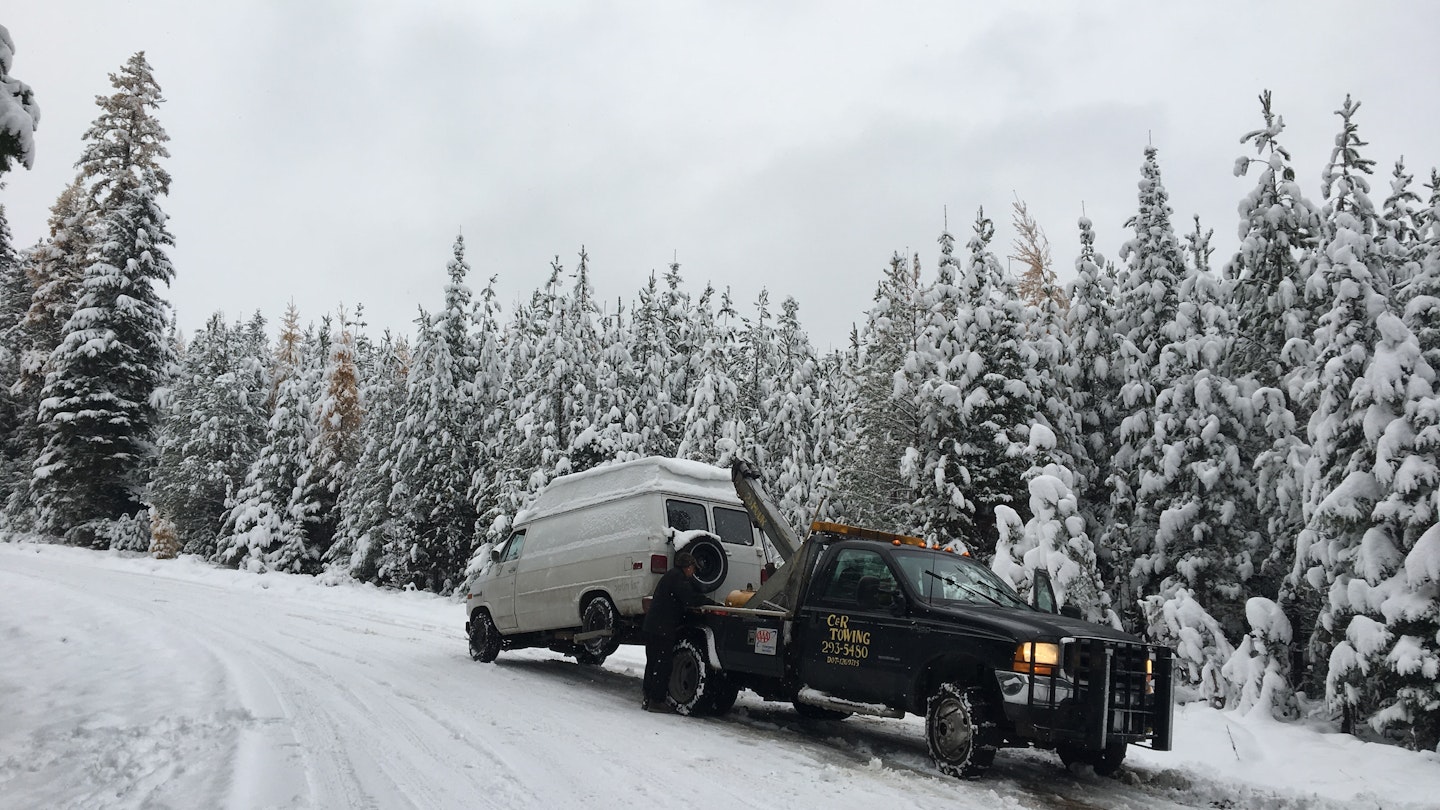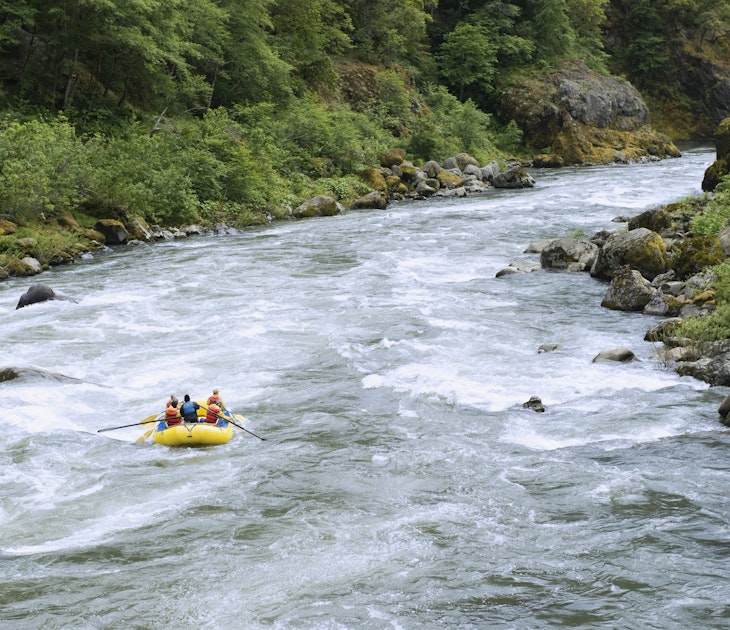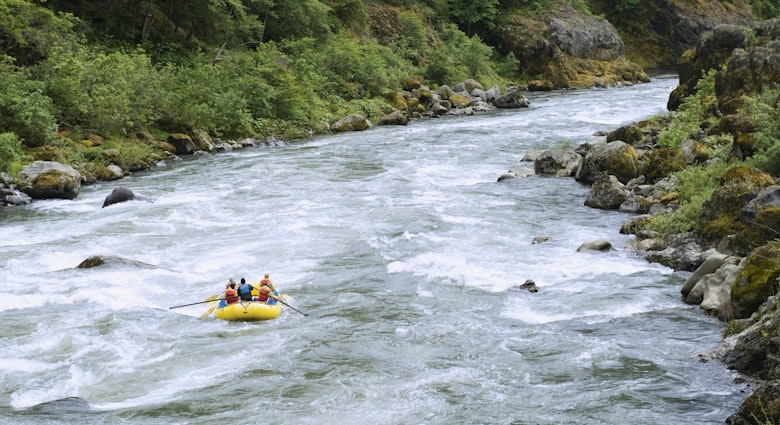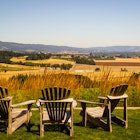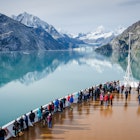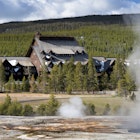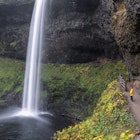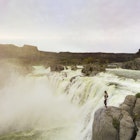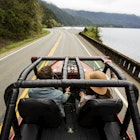I was sitting on a curb eating stale french fries when I first considered that sleeping at motels might actually be cheaper than traveling in my campervan. The alternator belt snapped somewhere between Portland and Seattle, and my battery was dead. It was going to cost me over $300 to fix, so I munched on a dollar menu snack while the mechanic worked on “Shirley.”
My 1986 GMC Vandura, named for her red bumper (like the cherry on a Shirley Temple) was a Craigslist find. The inside had been converted into a cozy living space with a bed, a sink, and a bookshelf where I stored more books than anyone should keep in 50 square feet of living space. But my books were part of the romance. I’d been lured by the beautiful photos of #vanlife on Instagram, and I wanted to travel to all of those places and write stories about life on the road.
Traveling in a camper van can offer a refreshingly minimalistic approach to life. And if you do it right, it can save you money on travel. But there are lots of hidden vanlife costs that can set you back if you aren’t prepared. Here are some that I discovered the hard way.

Camper van repairs
When you’re driving not only a vehicle but a home inside of a vehicle, there are a lot of things that can break. If your camper van has custom components, like a solar panel that charges a battery that runs the lights and charges your cell phone, malfunctions can be complicated – and therefore expensive.
If you do the conversion yourself, you’ll probably know how to fix these things (or learn in the process). If you don’t, try to be as involved in the process as possible and ask lots of questions along the way. Either way, hopefully, you don’t end up overpaying when something needs to be fixed.
Understanding the basic mechanics of your camper van and possessing the knowledge to do basic repairs is extremely valuable, as is regular maintenance like oil changes and tire rotations. There are plenty of auto repair videos and online classes to get you started. But you’ll likely learn through trial and error, becoming accustomed to the various noises your van makes — and the ones it shouldn’t.
My biggest money-saving move was an AAA membership. My old camper van had a tendency to break down, and their free tows were a side-of-the-road lifesaver, time and again. Note that you’ll need RV insurance if your van has living space — I had the regular membership at first and when a AAA mechanic saw the bed in the back, they told me I had to upgrade.
The best destinations for camper van travel
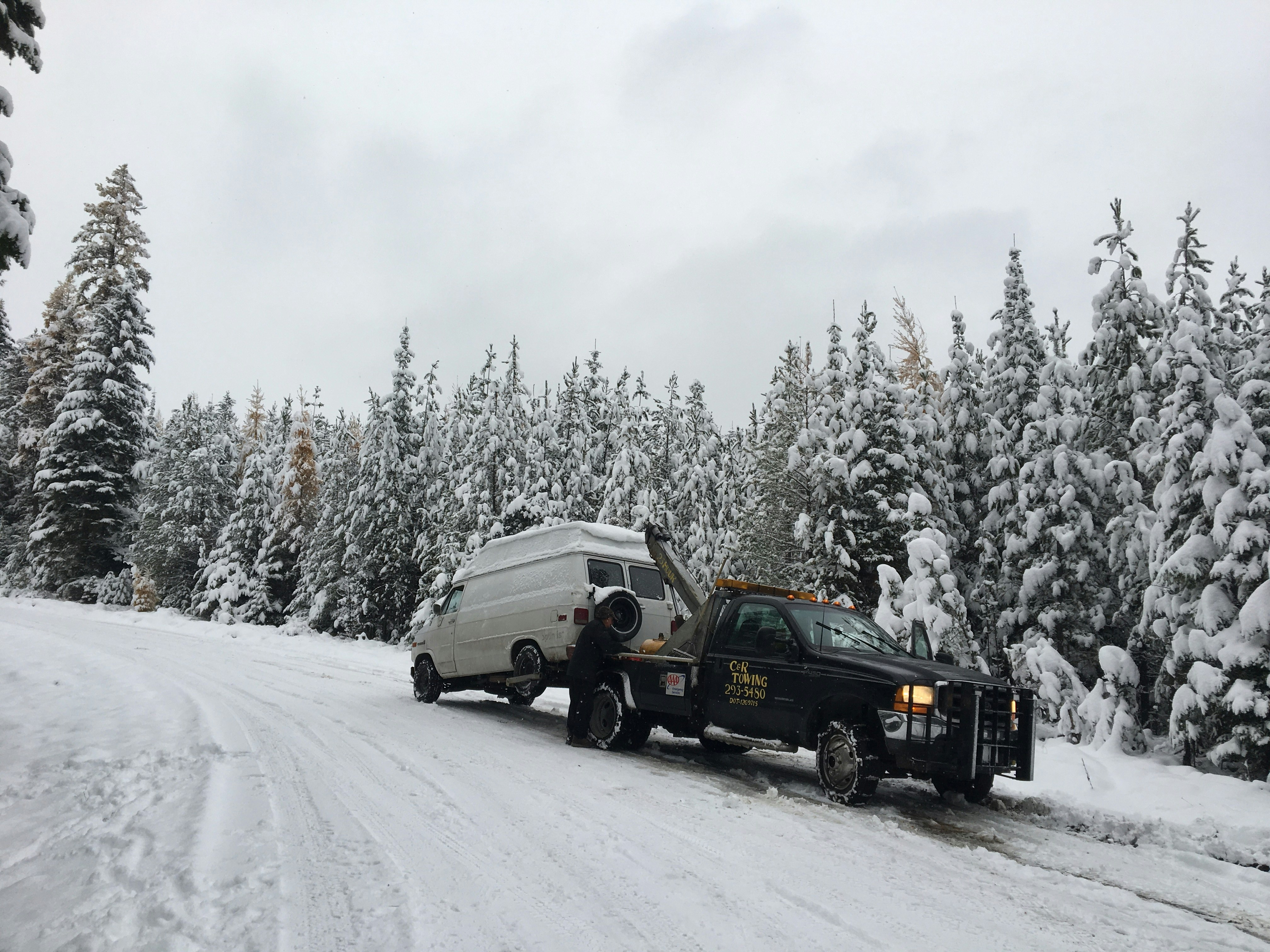
Campground and Park Fees
Driving something that doubles as a home is a great way to save money on rent or hotels. But when it comes time to park for the night, there’s some strategy involved in doing it for free. Established campgrounds, particularly at popular national parks, can easily cost over $30 a night — a vanlife expense that adds up quickly.
There are essentially two approaches to parking your camper van overnight for free. The first is to park in a neighborhood, a side street, or a busy hotel parking lot where you hopefully won’t be noticed. You’ll want to keep your windows covered and your lights dim so no one suspects the van is occupied. The second approach is to legally camp in places that don’t charge a fee, like free campgrounds or national forests where dispersed camping is allowed as long as you’re off the road. Freecampsites.net and iOverlander are both popular tools for finding free campgrounds.
I live in Oregon, where most highway rest stops allow parking up to 12 hours. I love the convenient access to bathrooms and vending machines, and many of them kind of feel like campgrounds – but with a lot more traffic nearby.
Walmarts are another popular option for boondocking. Many of them allow vehicles to park overnight, but not all of them, so check this website or with management.
The reason more millennials are choosing camping vacations in the US

Coffee, Food, and Bathroom Access
My camper van did not have a toilet, so I found myself regularly purchasing coffee and snacks for access to establishments’ bathrooms. The biggest problem with this? As soon as I finished a cup of coffee, I’d have to go again!
It took me awhile to learn how to not spend money every time I needed a toilet. But I found that rest stops, gas stations, libraries, community centers, and campgrounds all generally have bathrooms that don’t require a purchase. And if you work on the road as a digital nomad, libraries are also great places to get online and be productive without buying food at cafes.
Yosemite is getting a new camp site, filled with iconic Airstream silver bullets
I had a stove in my campervan, but cooking in that tiny space wasn’t easy, and I often craved a change of scenery and the comfort of a crowd if I’d been driving on my own all day. I got into the habit of making simple meals for breakfast and lunch so I could splurge on a sit down dinner and a beer at night. Some people prefer to cook in their vans or at campgrounds, but I love exploring the local food in new places, so I save money elsewhere and give myself permission to enjoy the regional board of fare.
Vanlife helps you focus on certain priorities, like the freedom to travel and embrace new experiences over material possessions. You’ll save money in some places, and then unexpected vanlife costs will sneak up on you. But if the open road is what you crave, then you’ll find ways to make it work.
You might also like:
New Zealand aims to make freedom camping more sustainable
How one couple fell in love with vanlife
The websites and apps that can help plan your next camping trip
